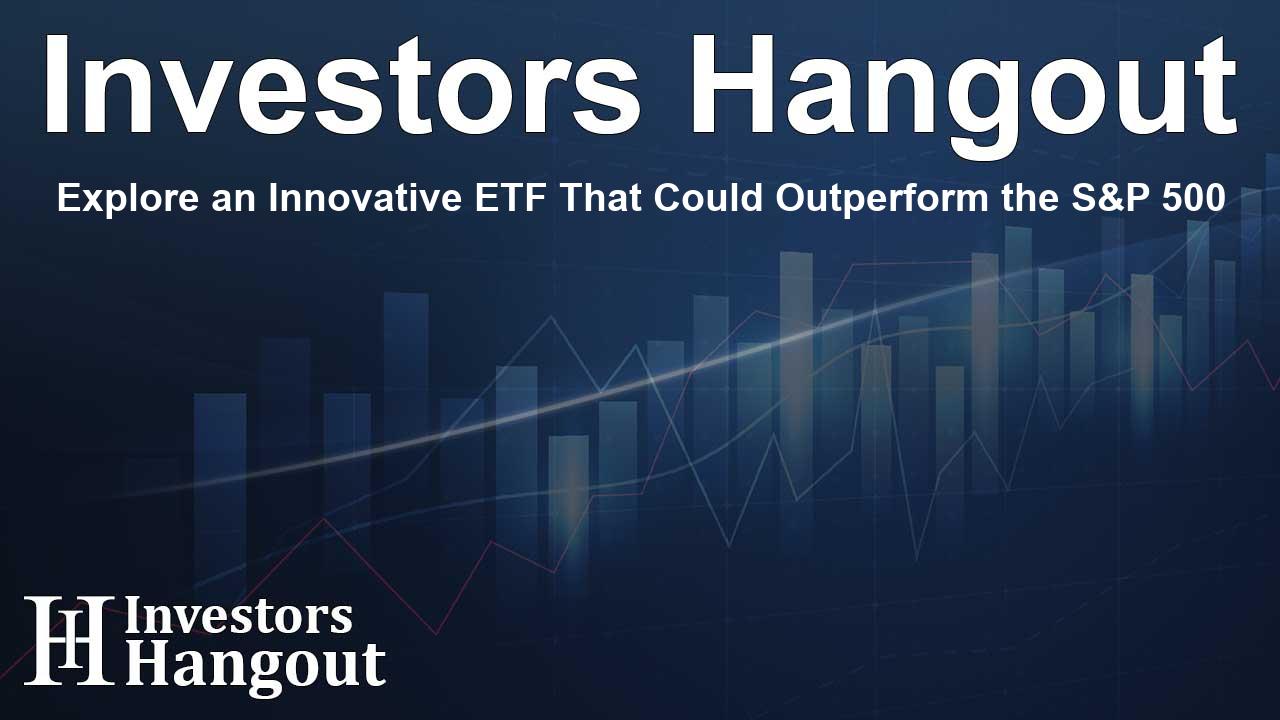Explore an Innovative ETF That Could Outperform the S&P 500

Navigating the Stock Market: The Need for Diversification
When it comes to stock market investments, many people associate success with the S&P 500 index. This index is well-known for its historical average return of 10.5% since 1957, making it a popular choice among investors. With remarkable returns of 24.2% in recent times, the S&P 500 has thrived, largely fueled by technology stocks. However, as markets continue to evolve, concerns regarding over-reliance on a single sector can make investors wary. The potential for declines in tech stocks raises the question: how can you mitigate your investment risks while still seeking high returns?
Understanding the Risks of Heavy Tech Exposure
It’s important to recognize that the strengths of the S&P 500 could also serve as vulnerabilities. Just like a pitcher with a powerful fastball but limited options might struggle against savvy batters, investors too can face risks when too much weight is placed on dominant sectors such as technology. As highlighted by analysts, the S&P 500’s cap-weighted structure significantly relies on large-cap stocks, particularly those in the tech industry. If these stocks falter, the index's performance may be adversely affected.
The Consequences of Lack of Diversification
This dependence on tech can inadvertently lead to less diversification for S&P 500 investors. A portfolio heavily weighted toward a few large companies may not provide the balance needed to weather market downturns. For instance, during periods of market volatility, an index fund that strives for even weight distribution can offer a safer alternative, reducing potential losses while still providing growth.
Consider Alternative Investment Strategies
One investment gaining traction is the Invesco S&P 500 Equal Weighted Index ETF. This fund sets itself apart by maintaining an even distribution across various S&P 500 stocks and sectors. The approach leads to a portfolio that mirrors the overall S&P 500 while mitigating the risks that come from a heavy concentration in tech stocks. What this means for investors is that they receive exposure to diverse sectors without overcommitting to any particular company or industry.
Performance Insights: Equal Weight vs. Traditional Weight
Since its inception, the Invesco ETF has delivered impressive average returns of 11.71%, slightly higher than the S&P 500’s 11.13%. While individual years may favor one fund over the other, the consistent performance of the equal-weight strategy suggests a viable route for achieving balanced growth. With quarterly rebalancing, the fund ensures a steady distribution, helping to guard against sector overexposures that could derail investment returns.
The Importance of Diversification in Wealth-Building
Diversification stands as a fundamental principle in investment strategies, aiming to cultivate wealth over the long term. Indexes like the S&P 500 were originally designed to provide this diversification. However, investors should be vigilant about potential overexposure to any particular sector, as doing so might undermine the intended benefits of their investment strategy. Exploring ETFs that prioritize balanced investment across sectors is a prudent step towards avoiding these pitfalls.
Analyzing Your Investment Needs
As you navigate your investment journey, consider how your asset allocation aligns with your long-term financial goals. If you find that your investments are heavily weighted in certain sectors, it might be time to consult with a financial advisor to explore diversified options that can safeguard your portfolio. Tools and insights from financial marketplaces can assist you in connecting with the right professionals who can tailor advice to your unique investment situation.
Frequently Asked Questions
What is the S&P 500's average return?
The S&P 500 has historically averaged a return of 10.5% since its inception in 1957.
Why is diversification important in investing?
Diversification helps reduce risk by spreading investments across various sectors, which can mitigate losses during market downturns.
What is the Invesco S&P 500 Equal Weighted Index ETF?
This ETF provides a balanced approach to investing by ensuring that all S&P 500 stocks are evenly weighted, reducing reliance on any single company or sector.
How do the returns of the Invesco ETF compare to the S&P 500?
Since its launch, the Invesco ETF has posted average returns of 11.71%, slightly surpassing the S&P 500's 11.13% average return.
Should I consult a financial advisor for investment advice?
Yes, engaging with a financial advisor can help tailor your investment strategy to align with your financial goals and risk tolerance.
About The Author
Contact Thomas Cooper privately here. Or send an email with ATTN: Thomas Cooper as the subject to contact@investorshangout.com.
About Investors Hangout
Investors Hangout is a leading online stock forum for financial discussion and learning, offering a wide range of free tools and resources. It draws in traders of all levels, who exchange market knowledge, investigate trading tactics, and keep an eye on industry developments in real time. Featuring financial articles, stock message boards, quotes, charts, company profiles, and live news updates. Through cooperative learning and a wealth of informational resources, it helps users from novices creating their first portfolios to experts honing their techniques. Join Investors Hangout today: https://investorshangout.com/
The content of this article is based on factual, publicly available information and does not represent legal, financial, or investment advice. Investors Hangout does not offer financial advice, and the author is not a licensed financial advisor. Consult a qualified advisor before making any financial or investment decisions based on this article. This article should not be considered advice to purchase, sell, or hold any securities or other investments. If any of the material provided here is inaccurate, please contact us for corrections.
